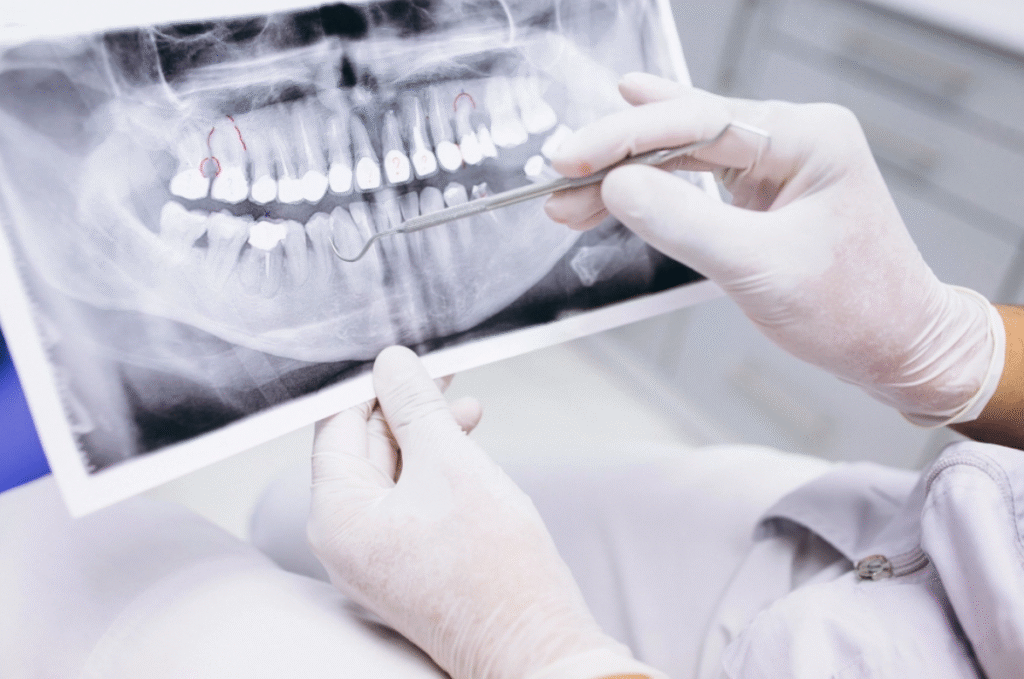
I have been asked in the UK why dentists have a Doctor title (and shouldn’t) since dentists only studied Dentistry.
The short answer is dentists do go to medical school.
The long answer is that when Dentistry became popularised and wanted to be added into the medical schools it never quite happened that way.
So for centuries, they have been 2 separate streams of teaching, however, that doesn’t mean medicine students and dentistry students don’t have common core learning curricula.
I studied for a dental degree, my university was very large and I studied alongside other degrees such as Medics, Nurses, Physiotherapists, OT’s and Pharmacists just to name a few.
I can say without a doubt the two degrees(Dentistry and Medicine) are far more similar than people would think.
We both studied General anatomy and physiology (we did this together, same classes in our first and second year). Dental surgeons or dentists specialised in the head and neck. So much so that we learned how to do a tonsillectomy and other surgical procedures related to ENT.
Continuing onwards we both did, General Pathology, Pharmacology, emergency medicine rotations, general surgery, physiology, pharmacology, biochemistry, trauma, anaesthetics, general medicine and other courses together.
Dentists receive medical training (we do general anatomy, physiology, pharmacology, stomatology etc.) with an intensive focus on the oral cavity and its associated diseases.
The oral cavity is a part of the human digestive tract, which plays a significant role in human health.
This is not only limited to issues with decay and gum disease, but also conditions that affect the mouth and oral environment which may manifest systemically as well.
Dentists learn a lot about general health and conditions such as diabetes, HIV, heart disease, etc. because they all have relations with the oral cavity and affect how patients need to be treated.
In fact, 90% of all chronic disease has an orientation in the mouth.
Dentists are also able to prescribe medications of all types.
The areas we differed was when the students of medicine would go and do their rotations for a medical speciality like Plastic surgery, we would go and do Dental speciality rotations like for instance Maxillofacial and oral surgery rotations.
I can vouch for the similarities in core understanding and coursework, as I tutored a friend who was studying medicine. We frequently conversed about our days and had some deep conversations wherein we could comprehend each other well.
I have a few friends who wanted to be Oral and Maxillofacial surgeons, they were doing medicine as well as a dual speciality that falls under Dentistry.
They don’t have to do the full degree of medicine, they have been credited for half of the degree because they covered the same coursework. It’s an accelerated type of course.
Lay persons in general (and some organisations in the UK) need to take the blinkers away and understand that both Physicians and Dental Surgeons, although different in training, are both Doctors in their own respective scopes.
Furthermore, dentists have to be both diagnosticians and surgeons. They see men and women. They deal with the very young and the very old and everything in between.
They see acute emergencies and routine check-ups.
They may deal with infections, pain, and bleeding issues, and they may encounter relevant medical conditions that involve things other than the mouth (i.e., heart valve replacement, etc.).
Dentist have to interpret X-rays and scans without the assistance of a radiologist and they can also prescribe medication. And so on and so forth.
For that reason, dentistry is not only historically, but practically, more than a subspecialty of medicine.
It is its own independent discipline.
Both course are so much alike and medics know it, so much so that some homeopathic doctors who run course on the specialisation of homeopathy will only accept course applications from medics and dentists.
No physician — not even a general practitioner — would ever have to deal with such a breadth of patients on a daily basis, acting in so many different roles and with such a wide variety of problems.
It really does take specialised training to prepare them for all of this. In recent years with both the British Dental Association and the General Dental Council accepting the use of the doctor title by dentists.
This has always being the case throughout Europe. It is really only in the UK that there is this distinction.
Since doctors in the UK often only have bachelor’s degrees (MBBS) as do dentists (BDS), there is no conflict in dentists to use the dcotor title.
Ergo, I worked and toiled at university for 5 years, 6 days a week from 7am to 8pm. I received my high honours grades, had to do dissertations on immunology (in my case as per my choice) and I am entitled to have the doctor title next to my name if I wish so, even if now I only practice Homeopathy and work as a practitioner of Homeopathy.
